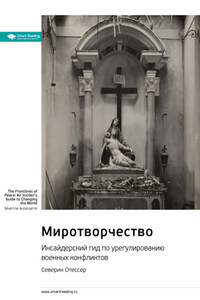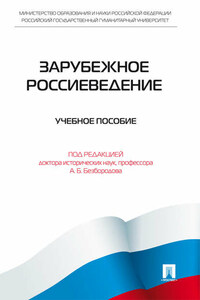Introduction—Looking Back at the Ruins
PART 1—The Classless Society
Holding on to Nurse
Class Hatred: A Defence
The Cool Rich and the Dumb Poor
The Moneyed Young Beasts
In Search of the Normal
PART 2—Who is England? What is She?
Celebrity Chefs and Invisible Immigrants
Black on Brown/Brown on Black
Ryanair Migrants
Neo-Fascists at the Village Hall
Shooting the Foxes
Law without Order
Svengali at the Church School
Blowing Britishness Away
PART 3—Oh, Comrades!
Pacifists and the Bomb
Communists and Fascists
Pseudo-Leftists and Real Rightists
Eco-tourists and Islamo-terrorists
Multiculturalists and Monomaniacs
Liberals and Murderers (Part One)
Liberals and Murderers (Part Two)
Social Democrats and Theocrats
PART 4—Tyranny and the Intellectuals
Martin Amis Meets Liberal London
Neoconitis Sweeps Broadcast News
It’s the Jews, Once Again
Vänster Om, Höger Om!
Nicolas Sarkozy Woos Bernard-Henri Lévy
PART 5—The Silence of the Hams
The Rout of the Avant-Garde
Now It’s the Art Galleries
The Broadcasters Bite Their Tongues
A Cartoon Crisis
State Britain
Labour’s Contemptible Election Trade-off
Inequality before the Law
PART 6—Bread without Freedom
Lesser Breeds without the Law
The White Woman’s Burden
Let Them Eat Organic
The Menace of the Quaint
PART 7—Cuckoo Land
Pathologising Everyday Life
The Genetic Revolution (Postponed)
The Clairvoyants
Criminal Crackers
Beware of the Flowers
PART 8—Before the Banks Bust
The World on Your Doorstep
Casino Capitalism
Natural-Born Billers
The Roc’s Egg of Great Ladies’ Assemblies
Primal Screams and Broken Dreams
‘Sub-prime’ (adjective): Insanely Risky
The Skull beneath the Skin
PART 9—Waiting for the Etonians
The Making of the Next Prime Minister?
‘We’re from the Tory Party and We’ve Come to Help’
Breaking the Camel’s Back
All Passion Spent
Attack of the Mulletts
Tory Isolationism
The Retreat to Little England
The Great Leap Backwards
Postscript—The Reasonableness of Ranters
Index
Also by Nick Cohen
About the Author
Review
Copyright
About the Publisher
Looking Back at the Ruins
Men, it has been well said, think in herds; it will be seen that they go mad in herds, while they only recover their sense slowly, and one by one.
CHARLES MACKAY, Extraordinary Popular Delusionsand the Madness of Crowds, 1841
TWO YEARS AFTER the Great Crash of 1929, the American journalist Frederick Lewis Allen looked back on the Jazz Age of the twenties as if remembering a dream. The daring flappers, abandoning their corsets and lifting their skirts ‘far beyond any modest limitation’, the swaggering investors, who ‘expected the Big Bull Market to go on and on’, ought to have been fresh in his readers’ minds. But Lewis knew that the bank failures and mass redundancies of the Great Depression had made the recent past utterly foreign. The optimism brought by prosperity was now as far away as a distant star. Wondering what to call his book, Allen hit on a title which was also a reminder, Only Yesterday.
After a deluge, nothing seems as remote as the day before it came. The thirties and the eighties have more to say to us now than the Britain of eighteen months ago. Across the centuries, historians of bubbles have reached for metaphors from fantasy worlds and lunatic asylums when they have tried to describe how crashes twist the linear progression of past to present out of shape. They talk of manias, lusts, fevers and delusions in make-believe lands that people take to be real until the sound of the roof falling in wakes them to face a bleak new world. Alexander Pope spoke for all sceptical historians when he wrote of the South Sea Bubble that ruined early Georgian England, ‘they have dreamed their dream, and awakening have found nothing in their hands’.
For this generation to think about what it was like before the Great Crash of 2008 will take the same mental wrench as the thirties’ generation needed to see back before the Great Crash of 1929. Only yesterday, level-headed young couples took mortgages of four or five times their joint incomes to buy hutch-like apartments in streets which estate agents described as ‘up-and-coming’ and their friends described as ‘scary at night’. Only yesterday City dealers in nightclubs threw handfuls of notes in the air for giggling girls to catch, as waitresses marching to the theme tune from Rocky brought £500 bottles of vodka and methuselahs of champagne to their tables. Only yesterday, Her Majesty’s Government encouraged speculators from every part of the globe to settle in London by so under-regulating finance capital that NatWest bankers and media moguls involved in scandals as notorious as the Enron affair of 2001 and the collapse of Conrad Black’s empire in 2003 could not be brought before British courts. American prosecutors took the alleged fraudsters to the US for trial, and confessed that Britain’s lenient treatment of serious crimes baffled them. They did not understand that only yesterday politicians and civil servants had boasted that the City’s economy was booming because of their ‘light-touch regulation’ of speculators whose number included potential swindlers. As a few of us noticed at the time, the politicians and civil servants never went on to argue that the inner-city economy might boom if the authorities applied a similarly light touch to the policing of the slums whose inhabitants included potential drug barons.










